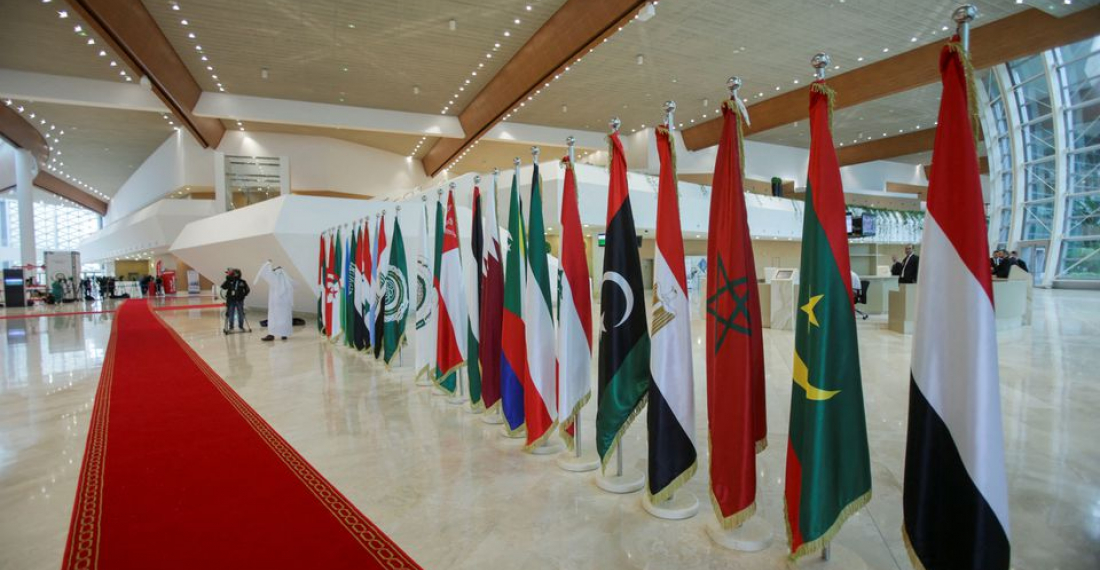The summit of the League of Arab States opened in the Algerian capital, Algiers, on Tuesday evening (1 November).
In the opening address, Algerian president Abdelmadjid Tebboune called for a strong Arab economic block that protects the common interests of Arab countries.
“We must all build a solid Arab economic block that protects our common interests, while working to define priorities and areas of common action, with an immediate and perceptible positive impact on the Arab peoples,” said President Tebboune in his speech to the participants in the 31st Arab Summit.
“We still face complex crises with multiple challenges and risks, especially after the Covid-19 pandemic, which has led to instability, tug-of-war, and the exacerbation of the scourge of polarization. This situation has contributed to the proliferation of crises with effects on international peace and security and impact on several countries, particularly in terms of food security,” the Algerian president said.
The Arab League is the pan-Arab institution that is supposed to unite the Arab States and give them a voice in global politics. The Arab League was founded in 1945, and has 22 members. Throughout its history it has failed to unite the Arab states, and despite the fact that from time to time it has adopted ambitious agreements for military, political and security integration, more often than not it has been a forum where Arab leaders meet to highlight their differences, rather than to showcase their unity. There have been one or two occasions where the League and its members spoke with one voice, especially on the Palestinian issue, but turning that unity into tangible joint co-operation and action has always proved elusive.
The fault lines within the Arab League have not always been the same: sometimes it was the monarchies versus the republics, or the ones seeking peace with Israel versus the rejectionists; or the moderates versus the hardliners. Sometimes the divisions revolved around personalities. More recently it has been Syria. Indeed the return of Syria to the Arab League after it was suspended in 2011 is the most significant feature of the League’s 31st Summit taking place in Algeria on 1-2 November.
A number of heavyweights are missing from the Algiers summit, including Mohammed bin Salman of Saudi Arabia and Mohammed bin Zayed of the United Arab Emirates. Other Gulf countries, except Qatar will not be represented by their head of state.
Another notable absentee is King Mohammed VI of Morrocco, who initially was thought would attend the summit.
AFP quoted Morocco’s Minister of Foreign Affairs Nasser Bourita, saying that Morocco’s monarch initially confirmed his willingness to attend the Algiers summit.
“The Moroccan delegation did not receive any confirmation from Algeria through its channels” after inquiring about information on the arrangements for the King’s reception, Bourita said.
On the instructions of the King, the Moroccan foreign minister is leading a delegation, representing Morocco during the summit meetings. Relations between Algeria and Morrocco have been strained for a long time because of differences on the future of the territory of Western Sahara.
source: commonspace.eu with agencies
photo: Flags of the member states of the League of Arab States at the venue for the 31st Summit of the League taking p[lace in Algiers 1-2 November 2022 (picture by Reuters)






